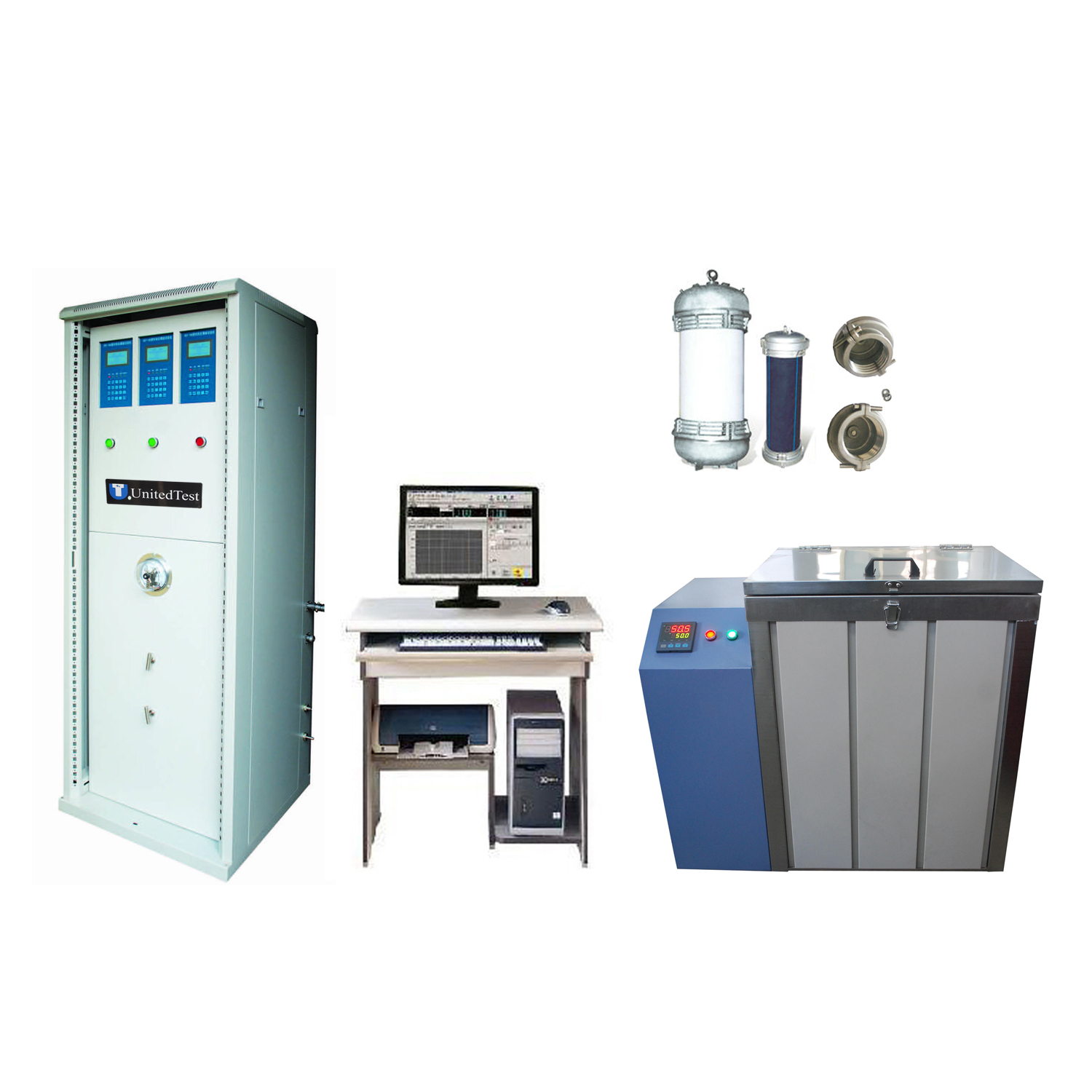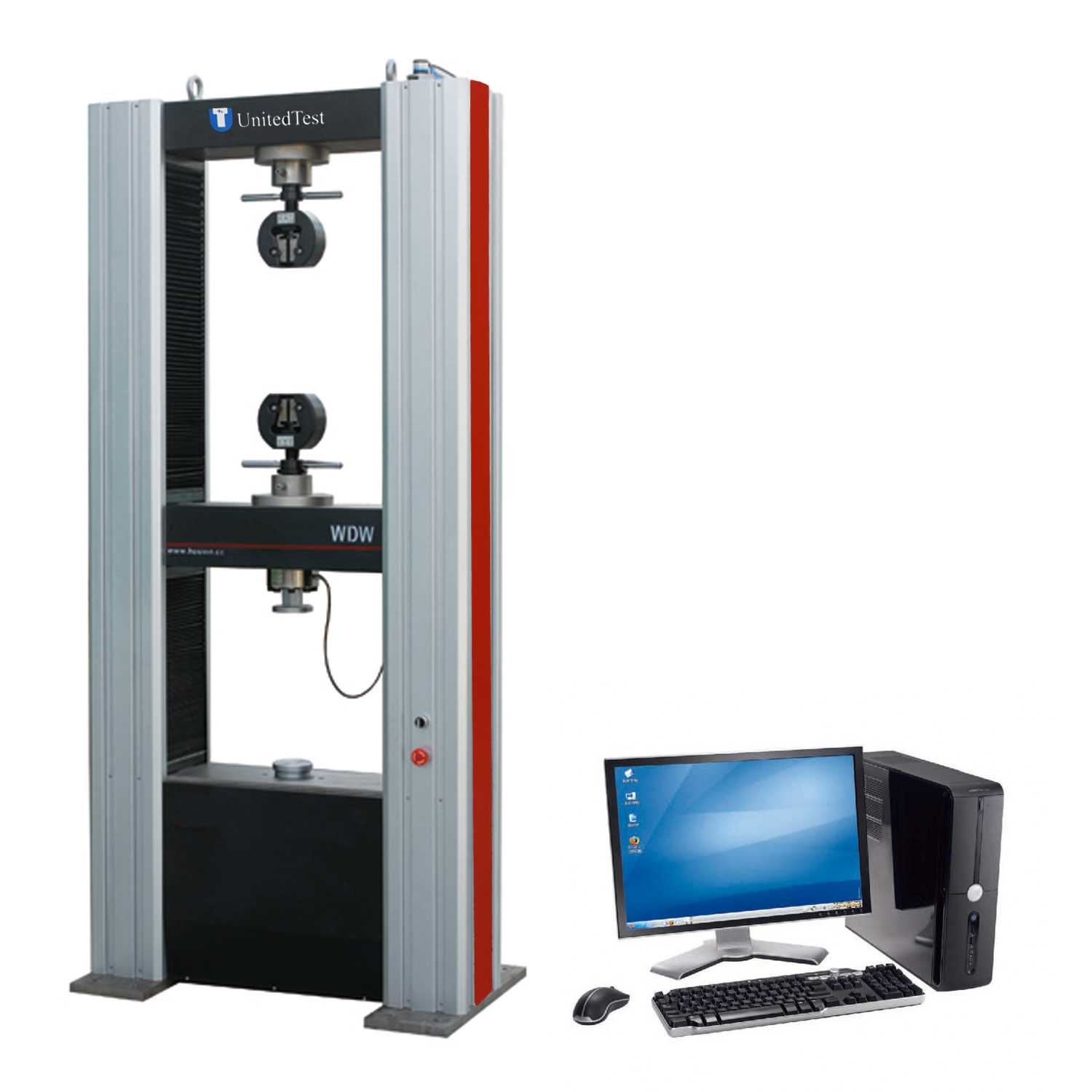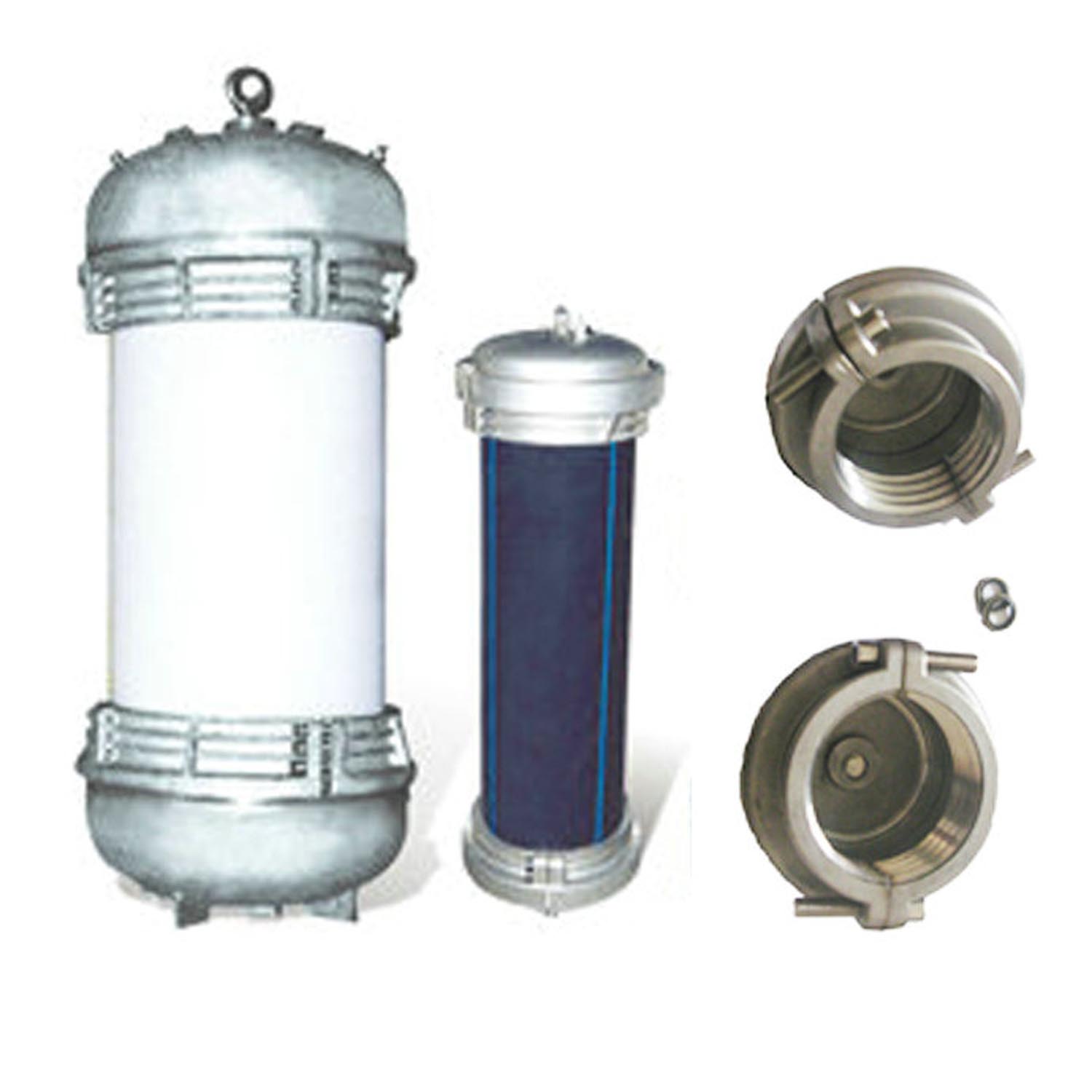ASTM D2837 Plastic Pipe Hydrostatic Pressure Test
This practice is useful for establishing the hoop stress or internal pressure versus time-to-failure relationships, under selected internal and external environments which simulate actual anticipated product end-use conditions, from which a design basis for specific piping products and materials can be obtained. This practice defines an HDB for material in straight, hollow cylindrical shapes where hoop stress can be easily calculated, and a PDB for fittings and joints where stresses are more complex.
This practice establishes two procedures, Procedure A (cyclic) and Procedure B (static), for obtaining a hydrostatic design basis (HDB) or a pressure design basis (PDB) for fiberglass piping products, by evaluating strength-regression data derived from testing pipe or fittings, or both, of the same materials and construction, either separately or in assemblies. Both glass-fiber-reinforced thermosetting-resin pipe (RTRP) and glass-fiber-reinforced polymer mortar pipe (RPMP) are fiberglass pipe.
ASTM D2837 Hydrostatic Pressure Testing Machine for plastsic pipe sample:
Advanced Hydrostatic Pressure Testing Service
ISO 9080 (MRS) Testing
Objective: Determine Minimum Required Strength (MRS) based on long-term hydrostatic strength at 20°C and 50 years.
Process: Rigorous hydrostatic pressure testing and regression analysis for precise classification of plastic pipes to ISO 9080 standards.
A complete evaluation includes hydrostatic pressure testing for generation of test data followed by regression analysis for determination of the long term hydrostatic strength, and finally classification of HDB (Hydrostatic Design Basis) or MRS (Minimum Required Strength).
MRS classification to ISO 9080 is based on the long-term hydrostatic strength at 20°C and 50 years.
HDB classification to ASTM D2837 / PPI TR-3 is based on the long-term hydrostatic strength at 73°F (23°C) and 100,000 hours.
ASTM D2837 / (HDB) Testing
Objective: Classify based on Hydrostatic Design Basis (HDB) using long-term hydrostatic strength at 73°F (23°C) and 100,000 hours.
Process: Hydrostatic pressure testing and regression analysis for compliance with ASTM D2837 and PPI TR-3 standards.
Standard Test Conditions
Temperature Variation: Tests conducted at 20°C, 60°C, 80°C for cold water/gas, and 20°C, 70°C, 95°C, 110°C for hot water. Fahrenheit temperatures used for ASTM standards. Material Diversity: Expertise in testing PE, PP, PB, PEX, PE-RT, PVC, PSu, and PA for a comprehensive evaluation.
High-Precision Measurement
Methodology: Robot cell for high-precision measurements, identifying minimum wall thickness. Automation: Automated measuring with computed radiography ensures thorough coverage, streamlining repetitive tasks with precision.
Diverse Material Evaluation: Comprehensive Hydrostatic Pressure Testing
PE (Polyethylene): Known for its versatility and durability, PE is widely used in plastic pipes for its excellent chemical resistance and flexibility.
PP (Polypropylene): Recognized for its high thermal resistance and stiffness, PP is a popular choice in applications where these properties are crucial.
PB (Polybutene): Offering a balance of flexibility and strength, PB is utilized in plastic pipes for its resistance to impact and aging.
PEX (Cross-linked Polyethylene): Known for its exceptional temperature and chemical resistance, PEX is widely used in plumbing and heating systems. PE-RT (Polyethylene of Raised Temperature Resistance): Specially designed for elevated temperature applications, PE-RT ensures reliable performance under demanding conditions.
PVC (Polyvinyl Chloride): PVC is valued for its chemical resistance, durability, and affordability, making it a common choice for various piping applications.
PSu (Polysulfone): With high-temperature resistance and excellent mechanical properties, PSu is suitable for demanding industrial applications.
PA (Polyamide): Known for its strength and impact resistance, PA is used in plastic pipes where durability and toughness are critical.













